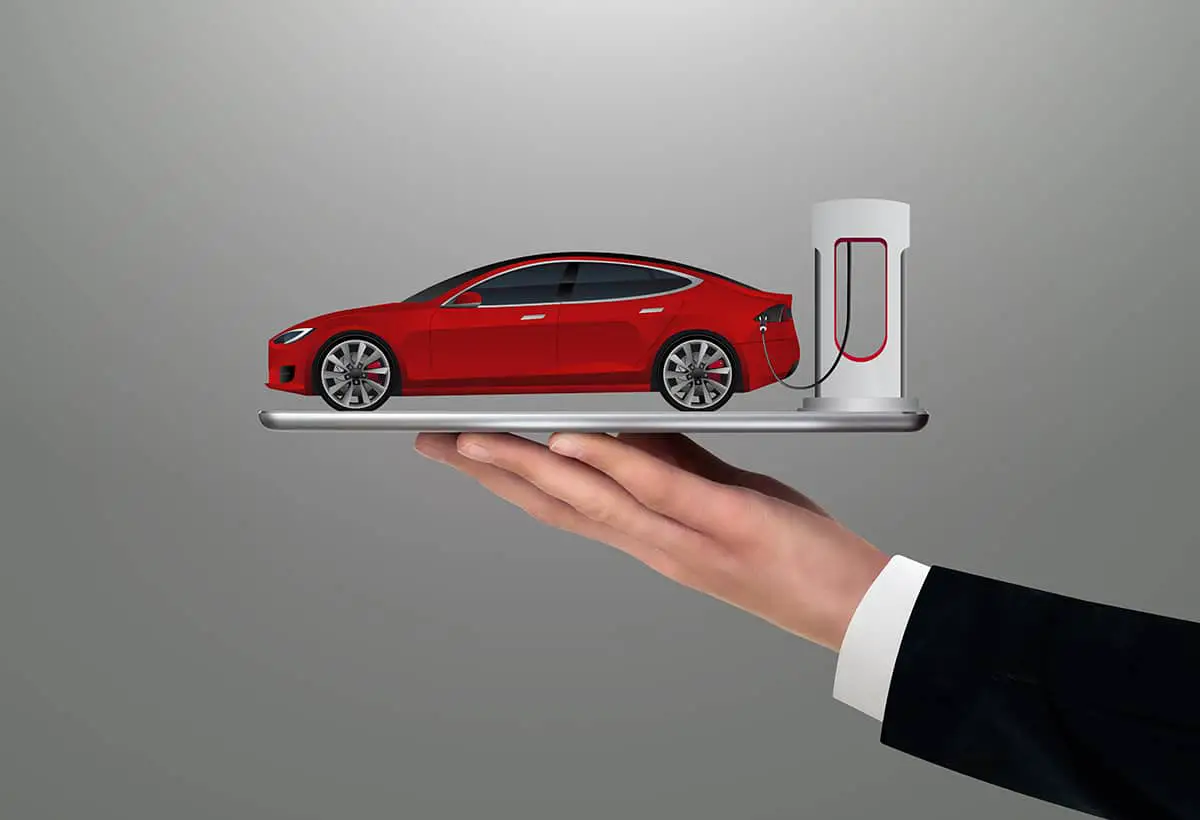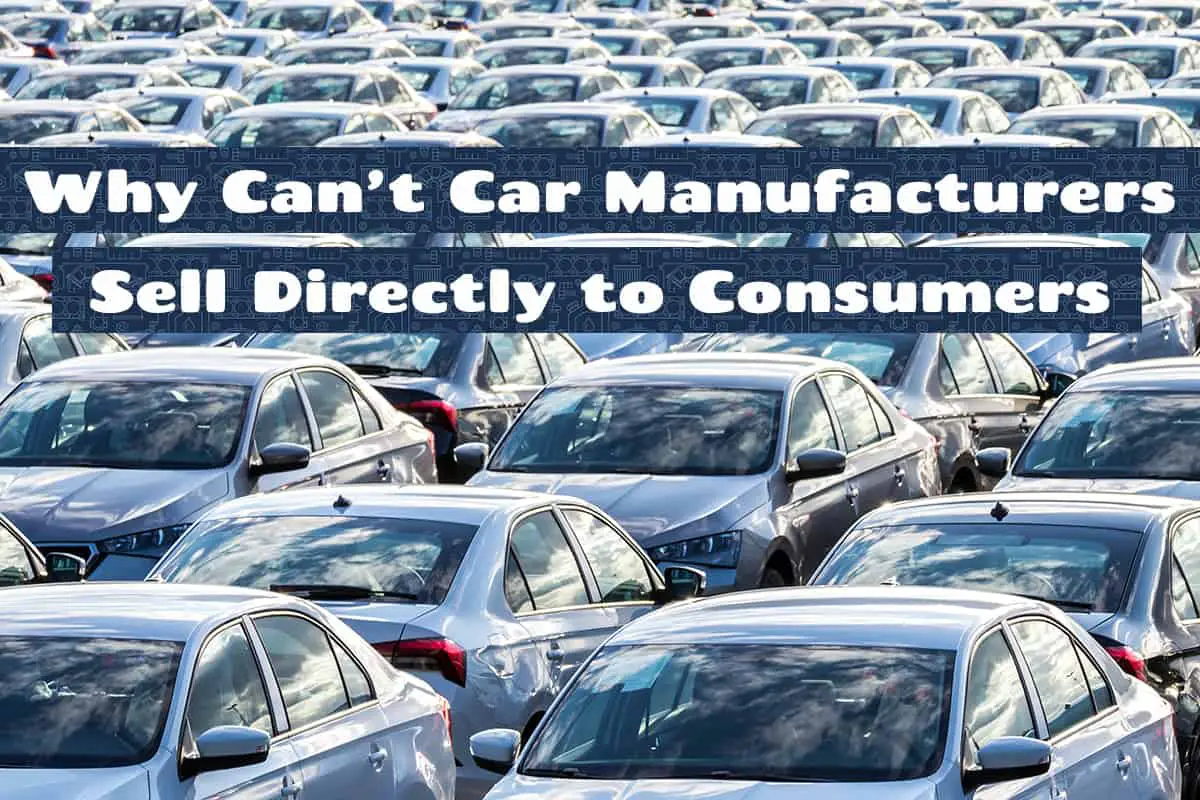If you want to buy a new car, you go straight to a dealership. But if you want to save a few bucks on your purchase, why not go directly to the manufacturer? Is this even possible?
The primary reason car manufacturers can’t sell directly to customers is due to franchise laws that protect dealerships. The current exception of this is Tesla, which sidesteps the traditional dealership model by setting up its own showrooms.
This article will explore the intricacies of the auto sales industry, discussing the history, legalities, and the few game-changers challenging the norm.
Historical Context
The automobile industry has witnessed tremendous changes since its inception. The way we purchase cars today, primarily through dealerships, has roots that go back over a century.
In the late 19th century, as the popularity of cars grew, manufacturers realized they couldn’t manage the demand and customer service alone. They needed a system to distribute, service, and sell their vehicles locally. Thus, the dealership model was born. Dealerships became the bridge between car makers and customers, handling everything from sales pitches to after-sales services.
These early relationships were symbiotic. Car manufacturers could focus on what they did best: designing and building vehicles. Meanwhile, dealers, with their local knowledge and ties to the community, effectively managed sales and services.
Contracts were drawn up to protect the interests of both parties, ensuring that dealers had exclusive territories where only they could sell a particular brand. These agreements laid the foundation for what would later become strict franchise laws, ensuring the longevity of the dealership model and deeply integrating it into the fabric of the automotive industry.
Today, there are specific laws in place that prevent car manufacturers from selling directly to customers. However, Tesla has managed to go against this tried-and-true model (more on this later).
Economics Behind the Model
The car industry isn’t just about sleek designs and horsepower; it’s also a dance of numbers, balances, and economic strategies.
Benefits of the Middleman
Car manufacturers are experts in creating vehicles, but selling them to every individual in varied markets is a colossal task. That’s where dealerships come in.
Dealerships play the role of the middleman, reducing the burden on manufacturers. Instead of the manufacturer investing heavily in every locality, dealers take on this responsibility. They establish showrooms, handle marketing, and manage customer service. This distribution of responsibilities reduces the financial risk and operational challenges for car manufacturers.
Risk Distribution
Manufacturing cars is a capital-intensive process. It involves huge investments in materials, labor, and technology. On the other hand, selling cars comes with its own set of risks, such as inventory management, price fluctuations, and changing customer preferences.
The dealership model divides these risks. Manufacturers handle the production risks, while dealers take on the sales-related challenges. For example, if a particular car model isn’t received well in a locality, it’s the dealer who bears the brunt of this miscalculation, not the manufacturer.
The Pricing Puzzle and Bulk Buying
You might be wondering why car prices vary from one dealership to another. The answer lies in the economics of bulk buying and the dealership’s pricing strategies.
Dealers often purchase vehicles in bulk from manufacturers, which may come with volume discounts. These savings can be passed onto customers, or used to increase the dealership’s profit margins.
Additionally, dealerships might adjust prices based on local demand, competition, and other regional factors. This flexibility in pricing allows dealers to adapt to local market conditions—something a uniform pricing model by manufacturers might struggle with.
Why Manufacturers Might Prefer Direct Sales

As the automotive industry evolves, so do the sales dynamics. While the dealership model has been the dominant approach, there’s growing interest in the idea of manufacturers selling directly to consumers.
So, what’s prompting this shift in perspective, and why might some manufacturers consider cutting out the middleman?
1. Increased Profit Margins
Every time a car is sold via a dealership, a portion of the profit goes to the dealer. By selling directly, manufacturers could retain more of the profit for themselves. Dealerships, with their overheads like showroom space, staff salaries, and local advertising costs, often need to mark up the price of vehicles to cover their expenses and ensure a profit.
If manufacturers bypass this system, they could potentially offer cars at a lower price while still making a higher profit per vehicle. This could be especially appealing in an age where many consumers shop online and compare prices extensively before making a purchase.
2. Direct Customer Feedback and Relationships
When manufacturers sell through dealers, there’s a layer between them and the end consumer. With direct sales, manufacturers would have the chance to engage with their customers directly. Advantages of such a direct relationship could be as follows:
- Immediate Feedback: Manufacturers can gain first-hand knowledge of what customers like or dislike about their vehicles. This real-time feedback can be invaluable for research and development.
- Brand Loyalty: By managing the entire customer journey, from research to purchase to after-sales service, manufacturers can build a deeper connection with their buyers. This connection can foster brand loyalty, which is crucial in a competitive market.
- Customization: Without the limitations imposed by the traditional dealership model, manufacturers can offer more personalized options to customers. Whether it’s unique colors, features, or limited-edition models, direct sales can facilitate bespoke solutions.
3. Streamlining Inventory and Production
The dealership model can lead to situations where unpopular models or colors end up unsold on dealership lots. On the other hand, a direct sales model can be more closely tied to actual demand, which may offer the following advantages:
- Reduced Inventory Costs: By aligning production more closely with demand, manufacturers can reduce the costs associated with holding large inventories. This can also lead to savings in terms of space and maintenance.
- Adaptive Production: With real-time data on what customers are ordering, manufacturers can adjust their production lines more effectively. For instance, if a specific model or feature becomes increasingly popular, production can be ramped up to meet this demand.
- Fewer Unsold Vehicles: One of the challenges dealerships face is the risk of unsold inventory. Cars that sit on lots for extended periods can depreciate and might need to be sold at significant discounts. Direct sales, with its demand-driven approach, can reduce the prevalence of such scenarios.
The Tesla Model: A Modern Anomaly

Tesla, a name synonymous with electric cars, has become an automotive powerhouse, but its approach to sales sets it apart in more ways than one. Tesla has stirred up both admiration and controversy in the automotive world by sidestepping the traditional dealership model.
Tesla’s Direct Sales Approach
Without the need for dealership markups or negotiations, Tesla offers a fixed price for each vehicle. This transparency simplifies the buying process for consumers, ensuring they pay the same price regardless of where or when they purchase.
Tesla controls the entire sales process, from the online configuration of a vehicle to the physical delivery. This ensures that customers have a consistent experience, which is meticulously crafted in line with Tesla’s brand values.
By not relying on physical showrooms as much as traditional dealers and focusing on online sales, Tesla can save on overhead costs associated with maintaining large dealership properties.
Challenges and Controversies
As admired as Tesla is for breaking the norm, it isn’t without its share of controversy. Many states in the U.S. have laws that, on the surface, prohibit manufacturers from selling vehicles directly to consumers to protect dealerships.
The company has invested in lobbying efforts to change or adapt these laws. They’ve also garnered significant consumer support, with many advocating for the right to buy directly from manufacturers.
Tesla has faced legal battles in various states that have tried to block or limit its direct sales model. It has had to navigate a patchwork of regulations, adjusting its approach in each jurisdiction based on local laws. Don’t worry—the tech company won bigtime!
Will other car manufacturers follow suit? Only time will tell.







